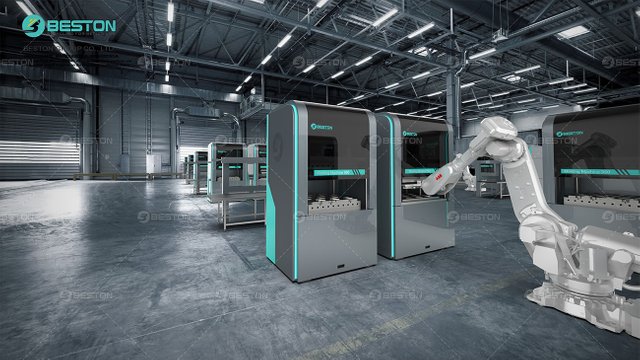Exploring the Investment Potential of Biodegradable Tableware Production Line
The escalating global concern over plastic pollution has catalyzed a substantial shift toward sustainable alternatives, particularly in the food service industry. Biodegradable tableware is emerging as a viable solution, offering a myriad of environmental benefits. With this growing demand, investment prospects in biodegradable tableware production lines are increasingly appealing. Central to this industry is the pulp molding machine, a pivotal technology in transforming organic materials into functional and eco-friendly products.
Market Dynamics and Growth Drivers
The market for biodegradable tableware has witnessed remarkable growth, driven by changing consumer preferences and stringent regulatory measures against single-use plastics. Governments worldwide are enacting policies to limit plastic consumption, fostering a favorable environment for biodegradable products. This regulatory landscape not only incentivizes manufacturers to adopt eco-friendly practices but also encourages consumers to choose sustainable options.
In parallel, consumer awareness regarding environmental issues is escalating. More individuals are opting for products that minimize ecological impact, resulting in a significant surge in demand for biodegradable tableware. This growing market presents an excellent opportunity for investors, as the industry is poised for robust expansion in the coming years.
Technological Advancements in Pulp Molding
At the heart of biodegradable tableware production lies the pulp molding machine, which facilitates the efficient conversion of natural fibers into molded products. These machines utilize renewable raw materials such as agricultural residues, paper waste, and other organic fibers, ensuring that the production process remains sustainable.
Pulp molding technology has advanced significantly, enhancing production efficiency and product quality. Modern machines offer precision and flexibility, allowing manufacturers to create a wide range of products, from plates and bowls to cutlery and food containers. The ability to customize designs further strengthens the market appeal of biodegradable tableware, catering to diverse consumer preferences and applications.
Investors should consider the advantages of investing in advanced pulp molding machinery. These machines not only reduce waste and energy consumption but also increase production speed, thereby optimizing overall operational efficiency. The return on investment (ROI) potential is substantial, especially for manufacturers looking to meet growing demand while maintaining competitive pricing.

Economic Viability and Cost Considerations
The economic viability of biodegradable tableware production lines is another critical factor for investors. Initial capital investment can be substantial, particularly for high-quality pulp molding machines and ancillary equipment. However, the long-term savings associated with reduced material costs and waste management expenses can offset these initial expenditures.
Moreover, as technology continues to evolve, the costs associated with pulp molding machines are expected to decrease. Increased competition and advancements in manufacturing processes will further enhance the cost-effectiveness of biodegradable tableware production. Investors can capitalize on these trends, positioning themselves favorably in a rapidly expanding market.
Market Penetration Strategies
To maximize investment returns, companies must adopt effective market penetration strategies. Partnering with restaurants, catering services, and food delivery platforms can facilitate product adoption, creating a robust customer base. Moreover, establishing relationships with retailers for product distribution will enhance market visibility and accessibility.
Engaging in branding and marketing efforts that highlight the environmental benefits of biodegradable tableware can also attract eco-conscious consumers. By emphasizing the sustainability aspect, companies can differentiate their products from traditional plastic alternatives, appealing to a broader audience.
Regulatory and Environmental Considerations
Investors should remain cognizant of the regulatory landscape governing biodegradable products. Compliance with industry standards and certifications is crucial for market acceptance. Obtaining certifications that validate the biodegradability and compostability of products can enhance credibility and consumer trust.
Additionally, aligning production processes with environmental sustainability principles is paramount. Utilizing renewable energy sources and implementing waste reduction practices can further enhance the ecological benefits of biodegradable tableware production. This commitment to sustainability not only meets regulatory requirements but also resonates with environmentally conscious consumers.
Conclusion
The investment prospects in biodegradable tableware production lines are promising, driven by favorable market dynamics and technological advancements. The pulp molding machine stands as a cornerstone of this industry, facilitating the efficient production of eco-friendly products. As consumer preferences shift and regulatory measures tighten around plastic usage, investors have a unique opportunity to engage in a burgeoning market.
With a strategic approach that emphasizes sustainability, quality, and market penetration, investors can position themselves advantageously within the biodegradable tableware sector. Embracing these trends and technologies will not only yield financial returns but also contribute to a more sustainable future.